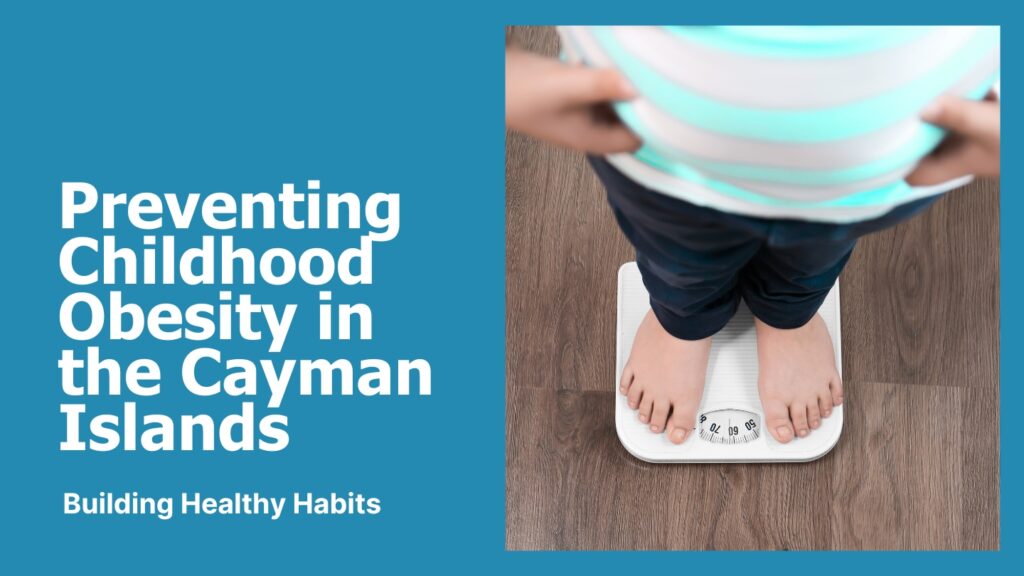The Cayman Islands

September is National Childhood Obesity Awareness Month, a time to focus on helping children build healthier lives. Childhood obesity is a growing global health issue, and even here in the Cayman Islands, it’s important for families and schools to work together in shaping better habits. From balanced nutrition to active lifestyles, small everyday changes can make a big difference in a child’s long-term health.
So, how do we create supportive environments that guide our kids toward healthier choices?
Why is childhood obesity a concern?
Childhood obesity isn’t just about weight; it’s about health. Children with obesity are more likely to face challenges such as:
- Type 2 diabetes
- High cholesterol and blood pressure
- Joint and bone problems
- Sleep apnea
- Social and emotional struggles
What’s even more concerning is that childhood obesity often leads to obesity in adulthood, increasing risks of heart disease, kidney disease, and certain cancers. Addressing these issues early gives children a stronger foundation for a healthier future.
How can nutrition make a difference?
Food choices play a huge role in a child’s growth and overall well-being. In a world full of sugary drinks, fast food, and processed snacks, teaching kids about balanced eating is essential.
Here are some ways families can start:
- Prioritize whole foods: Offer more fruits, vegetables, lean proteins, and whole grains.
- Limit sugary beverages: Encourage water and natural juices over sodas and sweetened drinks.
- Mindful snacking: Swap chips and candy for nuts, yogurt, or fresh fruit.
- Cook together: Involve children in preparing meals; it builds both knowledge and healthy curiosity around food.
- When children learn healthy eating habits at home, they carry them into school and social settings.
Why is physical activity important?
In today’s digital age, kids spend more time sitting in front of screens than playing outside. Physical activity doesn’t just help with weight; it boosts mood, focus, and confidence.
The goal: at least 60 minutes of activity daily.
Some family-friendly ideas:
- Evening walks or bike rides together
- Sports and recreational activities like football, swimming, or dance
- Limiting screen time and replacing it with outdoor play
- Active household chores (gardening, cleaning, organizing)
- When activity becomes fun and part of a daily routine, children are more likely to stay engaged.
What role do parents play?
Parents are role models. Children often mirror the habits they see at home, which means your lifestyle choices impact theirs.
- Lead by example: Show kids that you also value balanced meals and active living.
- Set routines: Consistent meal times and family activities help create structure.
- Encourage, don’t pressure: Positive reinforcement works better than criticism.
- Monitor portion sizes: Teach children to listen to their body’s hunger and fullness cues.
- By making health a family priority, parents create a supportive environment where healthy choices feel natural.
How can schools support healthier kids?
Schools are more than learning spaces, they’re where kids spend a large part of their day. By promoting healthy eating and activity, schools can reinforce what children learn at home.
Some strategies include:
- Providing nutritious options in cafeterias
- Limiting access to sugary drinks and junk food
- Encouraging active recess and physical education programs
- Offering after-school sports or wellness clubs
- Educating kids about nutrition and healthy living
When parents and schools work together, children get consistent messages about health from every angle of their lives.
Why should families consult a healthcare provider?
Every child is different. Factors such as genetics, health history, and lifestyle all affect growth and weight. That’s why professional medical advice is key.
At Oasis Medical Group Cayman, families can get guidance on nutrition, physical activity, and managing lifestyle choices not just for healthy growth, but also for protecting long-term kidney health. Preventing obesity and controlling cholesterol levels early can significantly reduce the risks of chronic kidney disease later in life.
Preventing childhood obesity takes a team effort; parents, schools, and healthcare providers all have vital roles to play. By focusing on balanced nutrition, daily activity, and supportive environments, we can guide Cayman’s children toward healthier futures.
